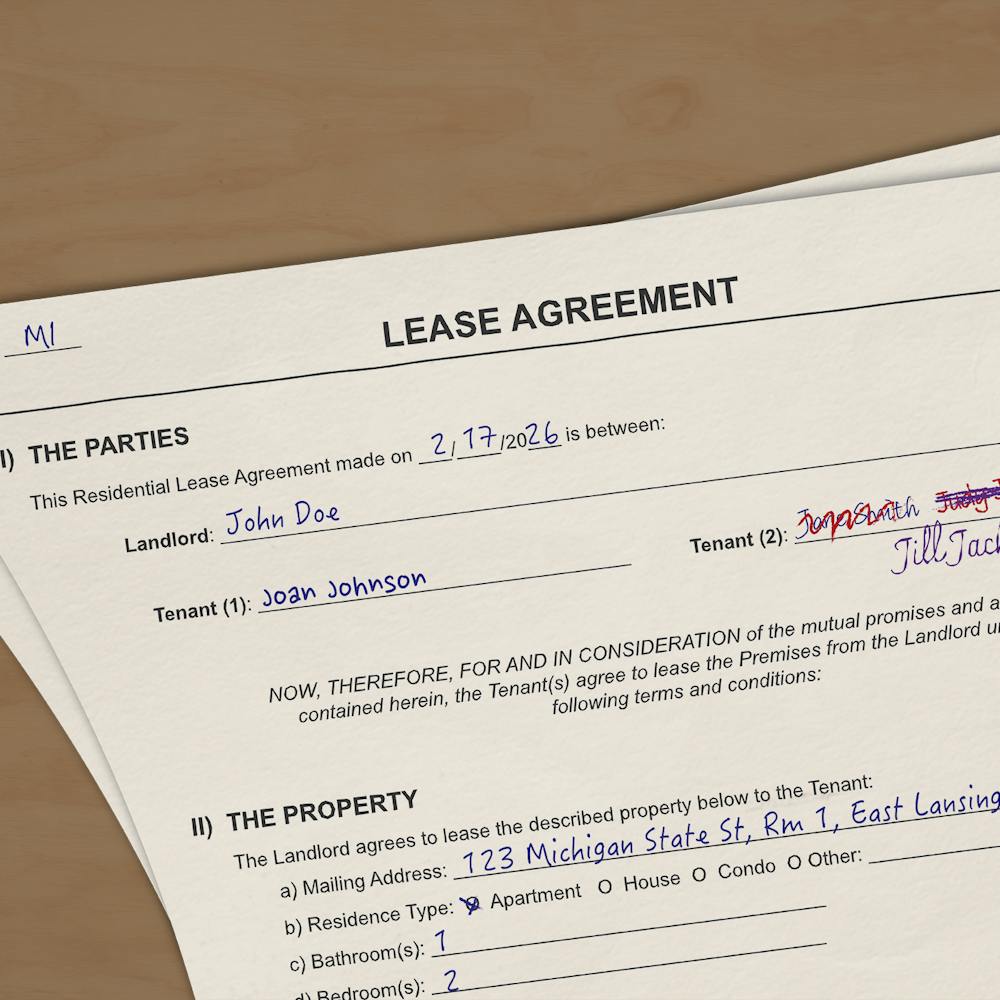An initiative proposed in the Michigan House of Representatives could change the way legislators do business at the Capitol by extending term limits on both representatives and senators to 12 years.
The primary sponsor of the initiative, Rep. Brian Calley, R-Portland, said extending term limits would allow elected officials knowledge and expertise that, under the old system, was difficult to attain.
"It would give the Legislature, who are accountable to the people, more authority over the legislative process," Calley said. "What we've done through term limits is transferred the power to bureaucracy, lobbyists and staff. They're the experts - they're the ones with the institutional knowledge."
The extended term limits would put a stop to what Calley referred to as a "revolving door policy," which prevents legislators from becoming experts on the issues facing the state.
If the plan were to be passed, the extended term limits would not come into effect until 2008 and would not apply to anyone elected prior to that date.
Term limits can drastically affect a legislators ability to do their job, MSU political science Professor Charles Ostrom said.
It takes years for legislators to gain the trust and experience necessary to make important changes, such as raising taxes, Ostrom said. That lack of experience and knowledge has caused the idea behind the imposition of term limits to backfire, he said.
"The idea was you need to get people out because of influence from special interests, but now people are more reliant on special interest groups because they lack expertise," he said.
Another benefit of extending term limits, Calley said, is it could stop legislators from devising short-term solutions for long-term problems.
"Current term limit laws have pushed the legislature to focus on short-term fixes and accounting gimmicks," he said. "Knowing that the real tough decisions would be left to the next people."
The idea of reducing or completely eliminating term limits has generated bipartisan support.
Sen. Gretchen Whitmer, D-Lansing, said one benefit of extending term limits would be ending what she referred to as "mandatory inexperience."
"We have a $40 billion budget," Whitmer said. "We don't want novices making those decisions. Public policy has paid the price for it."
Rep. Mark Meadows, D-East Lansing, also opposes term limits and will be proposing his own plan to eliminate term limits entirely, in return for a reduction in legislators' salaries. Term limits have negatively impacted the state, Meadows said.
"We would have had the budget issue resolved long ago if we did not have these term limits," he said.
Others, however, feel extending term limits wouldn't make much difference.
"The problems we're facing now would be a problem for any legislature, no matter how much time they had," said Bill Ballenger, editor and publisher of Inside Michigan Politics, a Lansing-based newsletter. "Our problems are as much a result of our governor and her lack of experience as it is the legislature."
Term extensions also could be a hard sell for the public, said Ed Sarpolus, vice president of EPIC-MRA polling.
"Term limits are very hard to overturn," Sarpolous said. "People believe 12 years is a lifetime job. Most people don't keep jobs that long."
While 12 years would be fittiing, he said the people would be reluctant to approve it.
"To the public, nothing's broke," Sarpolous said, "So why fix it?"






